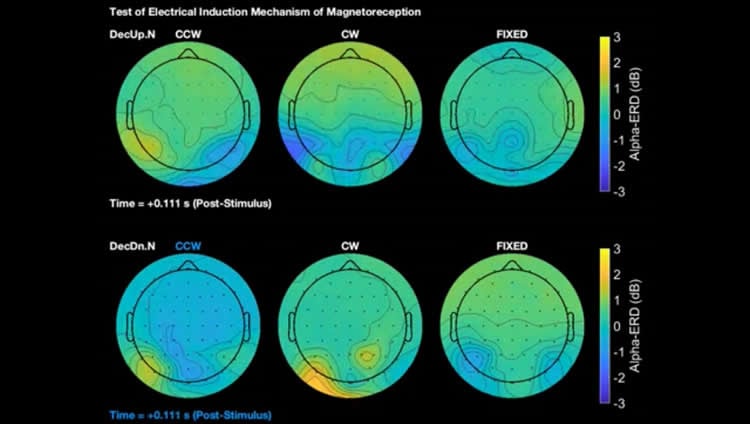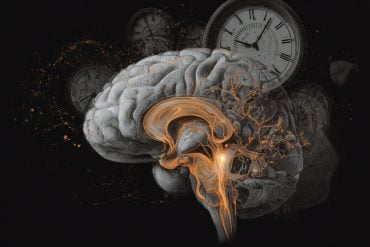Summary: A new study reveals the human brain responds to changes in the Earth’s magnetic field. Future studies could provide clues into the evolution and variations of magnetoreception in humans.
Source: SfN
The human brain can unconsciously respond to changes in Earth’s magnetic fields, according to a team of geoscientists and neurobiologists. Reported in eNeuro, this interdisciplinary study revives a research area in neuroscience that has remained dormant for decades.
Many animals, such as migratory birds and sea turtles, have a geomagnetic sense that supports their biological navigation system. Although magnetoreception has been well-studied in these animals, scientists have not yet been able to determine whether humans share this ability.
Geoscientist Joseph Kirschvink, neuroscientist Shin Shimojo, and their colleagues at Caltech and the University of Tokyo set out to address this long-standing question using electroencephalography to record adult participants’ brain activity during magnetic field manipulations. Carefully controlled experiments revealed a decrease in alpha-band brain activity — an established response to sensory input — in some participants. The researchers replicated this effect in participants who responded strongly and confirmed these responses were tuned to the magnetic field of the Northern Hemisphere, where the study was conducted.
Future studies of magnetoreception in diverse human populations may provide new clues into the evolution and individual variation of this ancient sensory system.

Funding: These studies were supported by Human Frontiers Science Program, Defense Advanced Research Projects Agency, Japan Society for the Promotion of Science.
Source:
SfN
Media Contacts:
David Barnstone – SfN
Image Source:
The image is credited to Wang et al., eNeuro (2019).
Original Research: Closed access (A preprint of this manuscript has been posted on bioRxiv)
“Transduction of the Geomagnetic Field as Evidenced from Alpha-band Activity in the Human Brain”
Connie X Wang, Isaac A Hilburn, Daw-An Wu, Yuki Mizuhara, Christopher P Cousté, Jacob N H Abrams, Sam E Bernstein, Ayumu Matani, Shinsuke Shimojo, Joseph L Kirschvink
bioRxiv 448449; doi:10.1101/448449
Abstract
Transduction of the Geomagnetic Field as Evidenced from Alpha-band Activity in the Human Brain
Magnetoreception, the perception of the geomagnetic field, is a sensory modality well-established across all major groups of vertebrates and some invertebrates, but its presence in humans has been tested rarely, yielding inconclusive results. We report here a strong, specific human brain response to ecologically-relevant rotations of Earth-strength magnetic fields. Following geomagnetic stimulation, a drop in amplitude of EEG alpha oscillations (8-13 Hz) occurred in a repeatable manner. Termed alpha event-related desynchronization (alpha-ERD), such a response is associated with sensory and cognitive processing of external stimuli. Biophysical tests showed that the neural response was sensitive to the dynamic components and axial alignment of the field but also to the static components and polarity of the field. This pattern of results implicates ferromagnetism as the biophysical basis for the sensory transduction and provides a basis to start the behavioral exploration of human magnetoreception.






